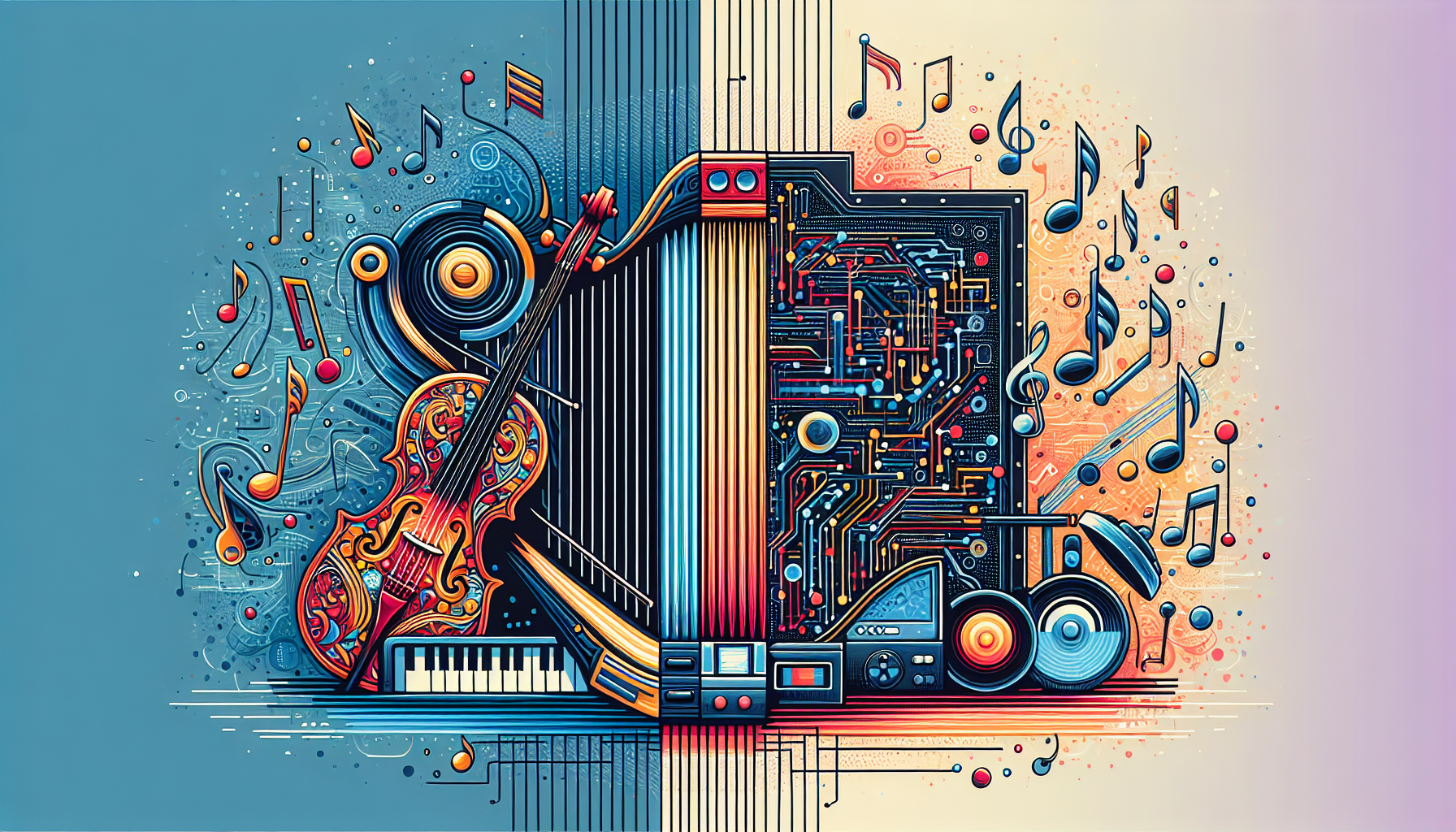
The Rise of AI-Generated Music
In a world where even your coffee machine might hum a tune, the emergence of AI-generated music is causing quite the stir. Universal Music’s daring decision to release an AI-powered Spanish version of Brenda Lee’s classic hit showcases how these digital maestros are composing new renditions of evergreen favorites. But hold onto your headphones, because listening to AI melodies could soon become as commonplace as watching cat videos online.
Imagine a future where your favorite song no longer gets lost in translation. Thanks to AI, music can now cross language barriers faster than you can say Despacito. Nevertheless, this techno-melodic revolution is charting into uncharted territories, stirring emotions and raising questions about what music truly means when it’s born from silicon rather than soul.
Legal Showdowns and Copyright Crusades
A storm is brewing in the courts as the legal implications of AI-produced content thunder through the creative skies. Like a cinematic showdown, Rupert Murdoch and his fellow media moguls are drawing their intellectual property swords to duel AI companies over unauthorized usage in training models. It appears that every pixel and note is up for grabs in what might be the most electrifying copyright caper of the century.
In an era where anything goes, the concept of fair use is as controversial as a plot twist in a telenovela. Creators and tech companies are engaged in a verbal dance-off, disputing the fairness of using creative works without consent. These digital debates might as well have popcorn sponsors; they’re that captivating. Watch as high-profile lawsuits unfold and legal gabfests make headlines faster than a newsworthy scandal.
Battling for the Soul of the Music Industry
As AI struts its stuff and challenges the traditional music landscape, there are whispers that human creators could soon be the sidekick instead of the star. The soulful blues of human artists struggling against AI-generated symphonies is a narrative richer than any new wave hit. Change is afoot, and it’s transforming not just how we consume music but how it’s born, distributed, and monetized, making every artist wonder if they’re next in line for a digital doppelgänger release.
Amidst this crescendo of change come regulatory proposals, with calls echoing from the UK to write regulations that make copyright clear for creatives and AI. Meanwhile, blockchain technology is making a cameo as a potential savior, offering creators a way to safeguard their original works and assure fair regalement of royalties. In this ongoing battle, creators and tech continue to tango around the issue of compensation, both working to find harmony in this chaotic symphony.
The Financial and Collaborative Horizon
As media and music companies find themselves financially rhyming to the rhythm of tighter margins, they’re increasingly adopting AI to take some of the heavy lifting. With BuzzFeed and Newsquest hopping on the AI wagon, it’s all part of a ploy to counter shrinking revenues and stay relevant in an ever-evolving digital age. The question lingers: Is AI a cost-saving hero or a harbinger of creative doom?
Even as AI dances on the boundaries of legality and creativity, it’s opening doors to exciting collaborations and new brushstrokes of innovation. Artists like Grimes are anchoring a new vision where AI doesn’t just mimic but enhances creative expression. Here lies a quirky paradox: AI threatens to upend traditional artistry while simultaneously offering a palette for newer, richer collaborations, where a robot’s touch might just make music… well, a little more human.






